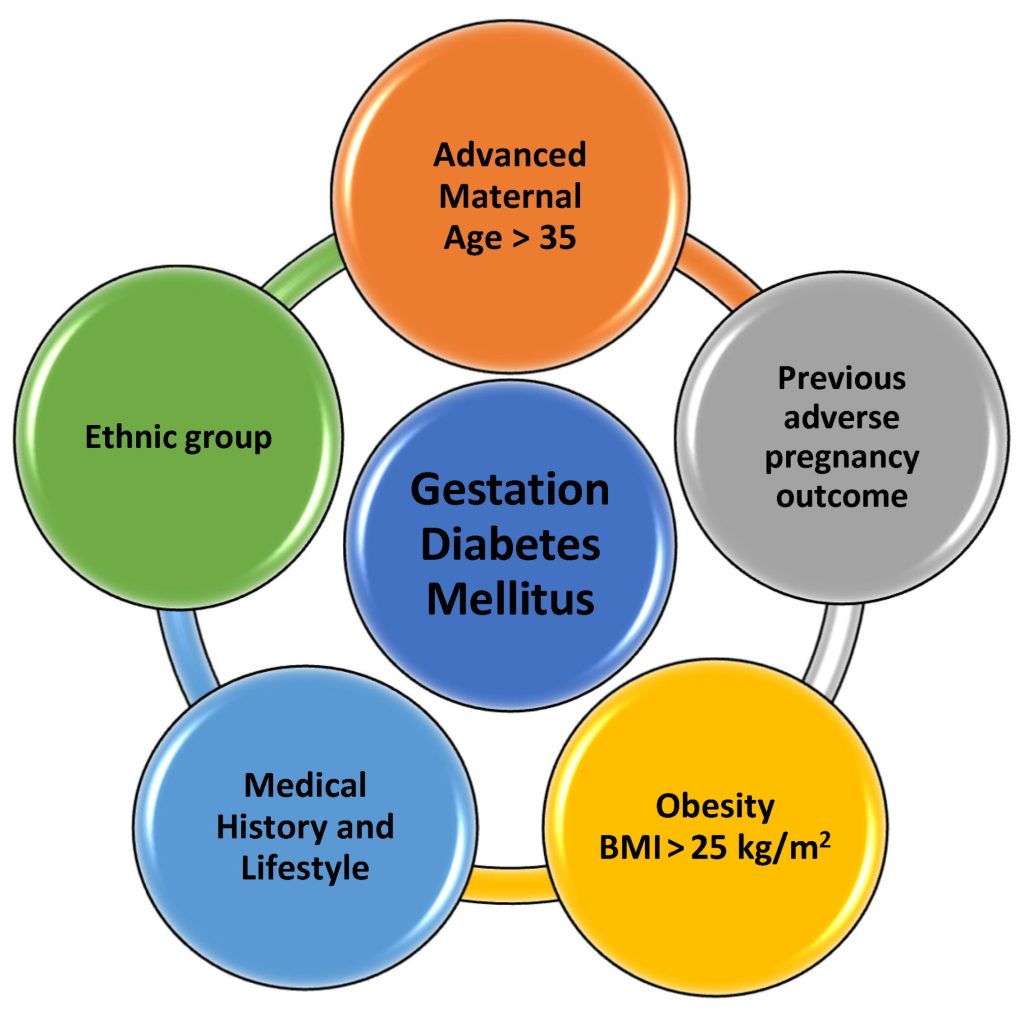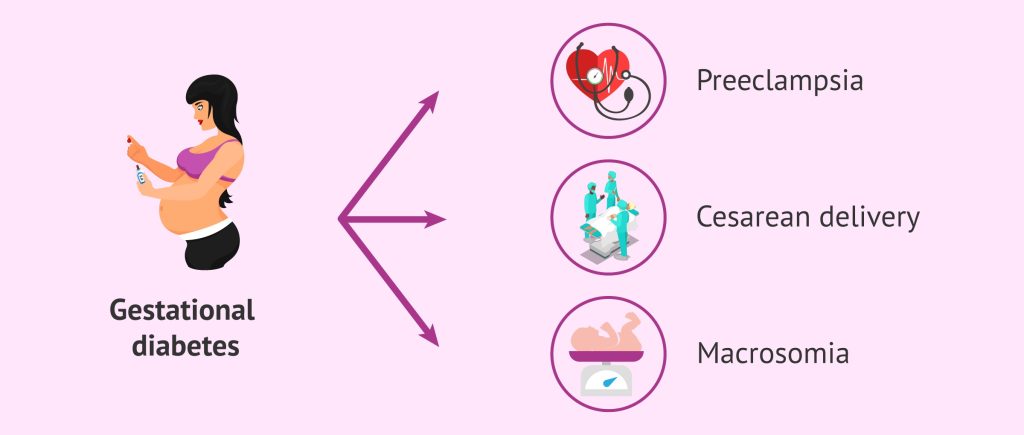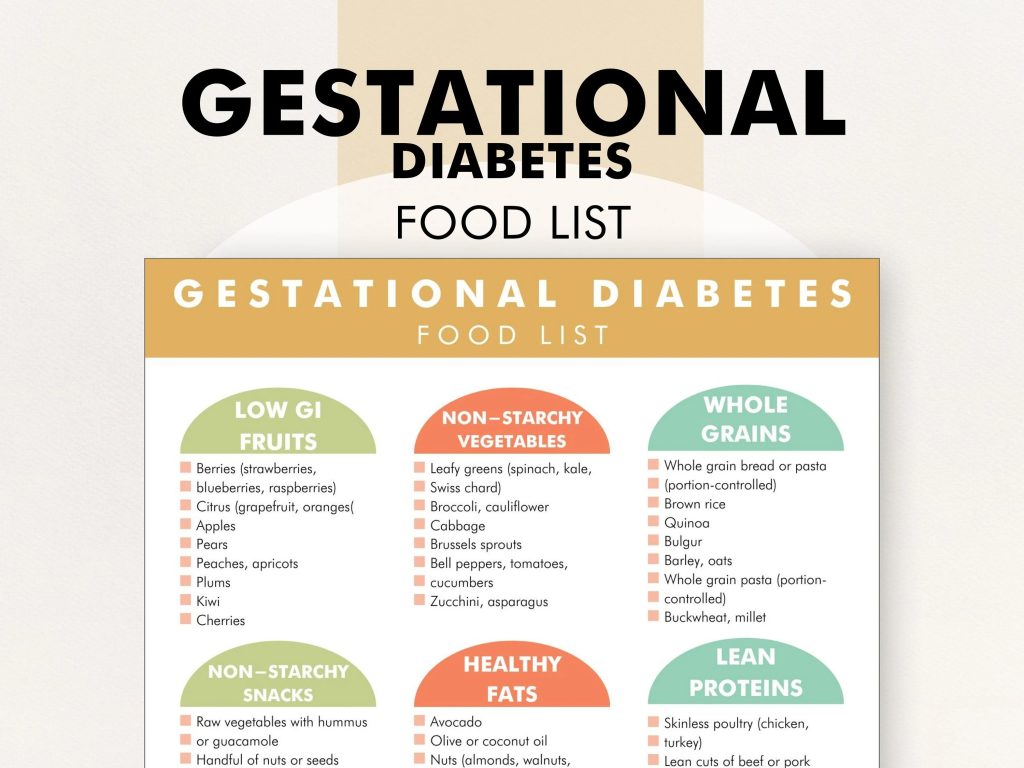High blood sugar, or glucose, known as gestational diabetes, is a condition that often goes away after delivering birth. While it can occur at any point during pregnancy, the second or third trimester is when it occurs most frequently.
It occurs when your body is unable to create enough insulin, a hormone that aids in blood sugar regulation, to satisfy your increased demands when you are pregnant. It is not a guarantee that you have diabetes before to becoming pregnant if you develop GD. Pregnancy is the cause of the illness. Pregnant women who have Type 1 or Type 2 diabetes before get pregnant have unique difficulties.
Thankfully, gestational diabetes is generally recognized, and with minor dietary and lifestyle adjustments, medical professionals can typically assist you in managing the illness. Most people with gestational diabetes give birth to healthy children without experiencing any major difficulties.
Who Is At Risk For Gestational Diabetes?
Gestational diabetes can strike anyone when they are pregnant. However, some things can make you more vulnerable. Among them are:

* Heart disease.
* High blood pressure.
* Having obesity or overweight before pregnancy.
* Personal history of GD (in previous pregnancies).
* Family history of Type 2 diabetes.
* Polycystic ovary syndrome (PCOS).
* Not being physically active.
* Advanced maternal age.
* Having previously delivered a baby weighing more than 9 pounds (4.1 kilograms).
* Prediabetes (history of higher-than-normal blood glucose).
* People over the age of 25 who are of South and East Asian, Hispanic, Native American or Pacific Island descent are also at a higher risk.
What Causes Gestational Diabetes?
Hormonal changes and the body’s process of converting food into energy are the causes of gestational diabetes. Insulin is a hormone that enters your body and breaks down glucose, or sugar, from eating.
Your blood glucose level is maintained at a healthy level by insulin. But sugar accumulates in the blood and causes diabetes if insulin is not produced in sufficient amounts or does not function properly. Insulin function may be hampered by placental hormones during pregnancy. It might not control your blood sugar levels as it should, which increases the risk of gestational diabetes.
Symptoms
The majority of the time, gestational diabetes has no outwardly visible symptoms. Possible symptoms include increased thirst and more frequent urination.
Complications
High blood sugar levels might result from poorly treated gestational diabetes. Elevated blood sugar levels can lead to complications for both you and your child, such as a higher chance of requiring a cesarean delivery (C-section).
Complications that may affect you: Gestational diabetes may also increase your risk of:
* Elevated blood pressure and preterm birth. High blood pressure and preeclampsia, a dangerous pregnancy condition that can endanger both your life and the life of your unborn child, are risks associated with gestational diabetes.
* Undergoing a C-section for birth via surgery. If you have gestational diabetes, your chances of having a C-section increase.
* Diabetes in the future. You have a higher chance of developing gestational diabetes in the future if you currently have it. As you age, you are also more likely to develop type 2 diabetes.

Complications that may affect your baby: If you have gestational diabetes, your baby may be at increased risk of:
* Low glucose levels, or hypoglycemia. Hypoglycemia, or low blood sugar, can occasionally strike newborns soon after birth. Seizures may result in severe hypoglycemia episodes in the infant. An intravenous glucose solution and prompt feedings can help bring the baby’s blood sugar back to normal.
* Type 2 diabetes and obesity in later life. Type 2 diabetes and obesity are conditions that babies are more likely to have later in life.
* Stillbirth. Premature or soon after birth, a baby may die from untreated gestational diabetes.
* Excessive weight at birth. An excessively big infant can result from blood sugar levels that are higher than normal. Babies who weigh nine pounds or more are considered very large and are more likely to require a C-section birth, get stuck in the birth canal, or suffer birth complications.
* Premature (early) birth. An early labor and delivery before the due date may be more likely in people with high blood sugar. Or, given the size of the baby, an early birth may be advised.
* Severe respiratory problems. Breathing difficulties are associated with respiratory distress syndrome in babies delivered prematurely.
When Should I See My Doctor?
There may be times when you need to contact your pregnancy care provider, even if you are taking good care of your health. Should you have gestational diabetes, get in touch with your doctor and:
* It is difficult for you to control your blood sugar levels. This indicates that for multiple readings in a row, your blood sugar levels are greater than the range your provider provided you. They might wish to modify your diabetes care strategy.
* You always have low blood sugar. Low blood sugar levels might also be harmful. Your doctor could have suggestions for keeping your blood sugar within a more normal level.
* You are unable to adhere to your management plan because of your disease. For instance, you might be vomiting for another reason or be suffering from food poisoning. Your blood sugar levels will be impacted by not being able to eat.
Prevention
Although you can not completely avoid it, you can lower your risk. The greatest ways to lower your chance of developing gestational diabetes before and during your pregnancy are to eat well-balanced, healthy meals and to exercise frequently.
* Diet Is Your Friend
Like with all types of diabetes, you may take control of your condition with food and exercise. Maintaining a balanced diet is essential to your success if you have gestational diabetes. Your doctor can assist you in creating a meal plan that works for you, guiding you in selecting the healthiest foods and quick meal ideas to keep you strong and well.

* Friend Is Exercise
Additionally, exercise is essential. Determine the amount of activity that is safe for you and your unborn child to engage in throughout your pregnancy by consulting with your doctor. Make use of our tools to stay up to date on daily activity ideas. The most crucial thing to keep in mind is to act as soon as you can, to persevere, and to continue monitoring your situation. It is curable. It is doable. It is a battle that you can prevail in.


What shouldn’t Women eat with gestational diabetes?
Eating wholesome foods that prevent dangerous blood sugar spikes will help you manage gestational diabetes. Attempt to:
* Steer clear of sugary drinks and processed foods.
* For every meal, select a nutritious ratio of fat, fiber, carbs, and proteins.
* Eat more frequently and in smaller portions.
* Plan to eat at the same time every day.
Remember that while some people may be able to eat particular foods without experiencing significant blood sugar effects, you might not be able to. Remember that each person is distinct and different from the others.














Leave a comment